GOVERNMENT 12 - Trials in Genesis
based on Landa’s book “God, the Bible & political justice”
Trial 1 God versus Adam & Eve Issue: lawlessness
Story behind Trial 1
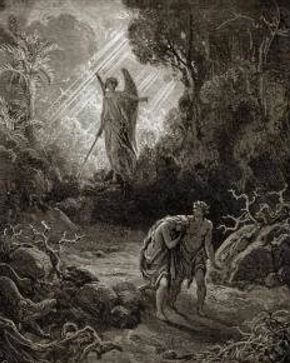
- God educated humans as to what the law was, and what the consequence of breaking the law is (Gen 2:16-17).
- Adam and Eve break the law = first act of lawlessness, bringing on consequences on humans & world (broken relationship with God, self, other human, nature).
- God begins the proceeding by seeking out the accused (Gen 3:8-10).
- God takes testimony from Adam and Eve (Gen 3:9-12).
- They both agree to having done it (plead guilty) though not really taking responsibility for their actions (Gen 3:12-13).
- God knows all truth even without them testifying. Yet he asks their testimony. Why?
- Maybe owning our actions is an essential step in the redemptive process.
- Maybe the declaration of truth is a part of what restores justice.
- Natural consequences are immediately experienced by the humans: fear, shame, guilt
- God adds permanent and irrevocable correction to the sentence: They (and their descendants) must leave the garden. Why?
- Gravity of the sentence reflects the gravity of the loss of God’s perspective and its consequences within a short time: first act of lawlessness has a horrendous destructive effect on society (see Genesis and rest of the Bible).
- God acts swiftly to prevent further destruction: he limits their access to the tree of life (Gen 3:22-24), which means God reduces their potential for destruction by ensuring they will not live forever.
- God intervenes to reduce the tragic impact of man’s action on himself: God gives them clothes to cover their nakedness, sacrificing his beloved animals (Gen 3:21).
- This act foreshadows both the effect of sin (> death) as well as what will be necessary to resolve sin, guilt, separation from God (> cross).
- God sentences the devil, man & woman to exile from the garden.
- This will mean multiplied labor (Gen 3:17-19) sorrow in multiplication (Gen 3:16) and finally physical death (Gen 3:19), which does not seem to have been part of original creation.
Elements of Trial 1
- Freedom of choice: freedom of choice is a built in reality of God’s Kingdom. This choice is not prevented nor ‘undone’ after sinning. Rather the reality of choice and its consequences are affirmed and displayed in the story.
- Law: human freedom is not without boundaries. God has established law & has clearly communicated law
- Responsibility: Humans are responsible for the freedom they have been given and the boundaries God has created
- Testimony: Part of the redemptive process is allowing the accused to own responsibility for their actions.
- Judgment and Sentence: Part of the redemptive process is closure, placing the injustice in the past and creating a clear understanding of the altered boundaries for the future
- Consequences: Choices are real and irrevocable > understand their impact
- Correction: The consequences are based on the over all destructiveness of the crime to the community present and future (here: radical impact)
- Compassion Regardless of their actions, the guilty are human beings created in the image of God and their integrity is to be preserved
- Recognition there is to be recognition of their innate human value regardless of their crime
Trial 2 God versus Cain Issue: fratricide
Story behind Trial 2
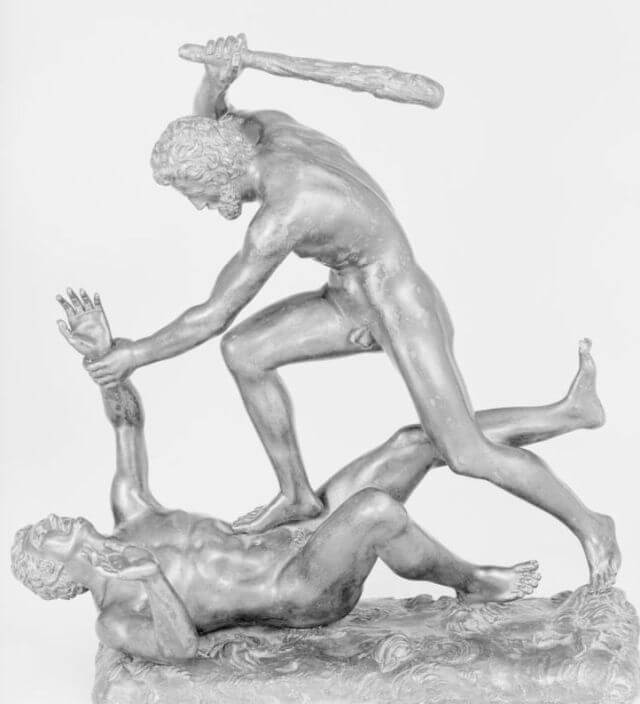
- Adam and Eve lived for a long time, having many children. The Genesis account doesn’t record all that happened nor mentions everybody’s story. It is a highly selective account giving us God’s view and essential understanding about what happened.
- Within one generation the loss of God and his perspective of reality leads to the progressive devaluing of human life >>> now murder.
- Cain and Abel understand that there is a God, but no longer understand what God wants. They bring offerings hoping for God’s blessing.
- God’s preferring of Abel’s blood offering is not a rejection of Cain, but God correcting Cain’s perspective of what God wants: a blood offering that symbolizes the consequence of sin and the necessary path to redemption.
- Cain, rather than accepting and learning becomes defensive and angry. He turns God’s instruction into a value judgment of himself and a personal ‘identity crisis’.
- God initiates communication and tells Cain to stop reacting and understand that he is accepted though his offering is not. God shows Cain his freedom of choice and his responsibility: Cain can master and have authority over this temptation. He can overcome it by accepting God’s instruction.
- But Cain doesn’t accept God’s perspective and chooses anger, resentment and murder instead.
The Trial 2
- God opens proceedings by addressing Cain and taking evidence by questioning the witness: “Where is your brother?”
- Cain lies “I don’t know”. Cain asks God “Am I my brother’s keeper?” Cain questions whether he has any responsibility for another human, even his brother.
- God brings forensic evidence in the form of the blood found on the ground. The material world is real. Evidence can be found. Guilt and innocence are real and a judicial finding can be true and just. Cain’s distortion of reality and misrepresentation of facts (intentional or not) does not change the reality of the crime committed.
- God evaluates the evidence and gives a verdict: Cain is guilty.
The appeal
- Cain appeals God’s verdict and God is willing to hear him.
- Cain thinks his punishment too severe: loss of land, family and family protection. Anyone can murder him … which is an interesting argument from one who just terminated another person’s life!
- But God agrees with him that ‘human life has value’, also his. A sentence should model a different set of values (human life is valuable) than the crime (murder = devaluing of human life).
- God ‘marks’ Cain so he is protected in exile from other humans.
- The number 7 represents perfection > Cain’s life is worth seven times another man’s … and by implication another man’s life is worth seven times his. The meaning = life is perfectly sacred and cannot be touched.
Elements of Trial 2
As before:
- Freedom of choice, Law, Responsibility, Consequences, Trial, Testimony, Judgment and Sentence, Consequences, Correction, Compassion, Recognition.
Added:
- Appeal process: Even guilty and convicted people do have a voice.
- Modification of Sentence: Judicial review as part of the redemptive process.
- Forensic evidence: The material world doesn’t lie, evidence can be found.
- Protection of life of convict: All human life is sacred.
Trial 3 God versus Human Race Issue: anarchy
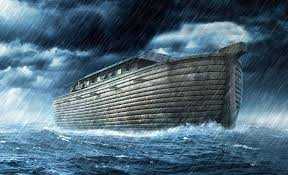
- Within 8 short generations from Adam (or 7 from Cain) there is an horrendous escalation of violence: Lamech boasts that he would kill a man for merely slapping him and 77 deaths will be necessary to avenge his life (Gen 4:23).
- God’s act of compassion to Cain has not resulted in humility nor in increased understanding of the value of life, rather it has been twisted to serve egocentric arrogance: A single murder now has grown into a universal culture of violence. The human race will self-destruct slowly and brutally.
- Gen 6:5-13 God’s evaluation of the human race: “5 great wickedness, every inclination of the thoughts of their hears was only evil continually … 11 corrupt, filled with violence”. Unless God intervenes the human race will self-destruct slowly and brutally.
- What is mercy and justice in this situation? How will God stop violence and still preserve human choice and the human race itself?
- God’s mercy demands: quick termination and a restart with the best humans he can find (Lamech’s son Noah). The objective is not annihilation or revenge but redemption.
The Trial 3
- God finds the human race guilty of murder, genocide, corruption in thought, word and deed. He pronounces the death penalty.
- God has no joy in destroying most of the human race and much of creation, and he promises to never do it gain: Gen 8:21-22.
The Death Sentence of Trial 3
- Death is the consequence of sin from Adam onward for all individuals.
- The human race has devolved from individuals that commit murder to communities that breed wholesale violence and murder.
- God’s judicial solution must actually deter from and decrease violence
- 1 great destruction (last time here)
- 2 further decreasing of human life span
- 3 again a sacrificing of his animal kingdom not only in the flood but by allowing meet eating (probably because of widespread cannibalism before the flood). He gives humans the right to eat meat, but not blood. God is trying to stop violence and teach us the sacred value of human life in Gen 9:1-7.
- A new start with Noah and his family.
Elements of Trial 3
As before:
- Freedom of Choice, Law, Responsibility, Consequences, Correction, Compassion, Recognition.
Added:
- Community Guilt: Not only individuals are responsible but communities are responsible for creating an environment that breeds crime.
- Permanent consequences: Further reduction of human life span.
- Unrepeatable, one-time attempt to start over
Trial 4 God versus Babel Issue: tyranny or imperialism
Story behind Trial 4
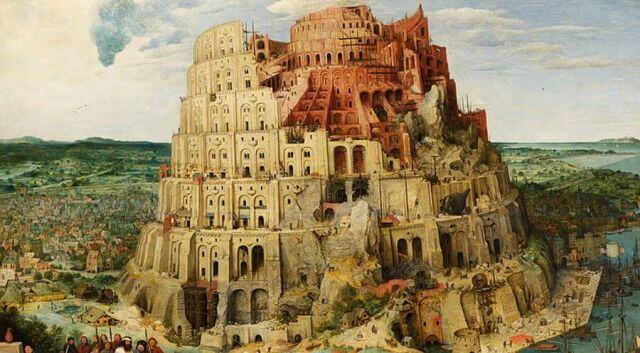
- By Genesis 11 the human race has developed a new kind of violence: political tyranny, a centralized empire, based on human pride and the refusal of God’s command to spread and diversify (Gen 11:4, Gen 1:28)
- God does not desire one land, one government, one economy, one culture and one language to rule the earth. Empire dreams first appear here and continue throughout history: Assyria, China, Babylon, Medo-Persia, India, Rome, Russia, Japan, Vikings, Mongols, Aztecs, Ottomans, Africans, British, Americans …
- Language development (with still mutual understanding) is a byproduct of time and distance.
- Language diversity in itself is not evil. God loves diversity. Note that language (with mutual understanding) is a redeemed thing in the coming kingdom of God (Rev 7:9).
- But here: God creates confusion of languages to the point of inability to communicate and understand each other to safe guard the diversity of cultures and the development of separate nations.
- Two political poles are visible (here and throughout history): pre-flood anarchy and post-flood tyranny. Both systems lead to unbelievable violence.
- God’s design is for self-governance and freedom but without God authority is abused.
- How can man be saved from his own violent nature while keeping his freedom of choice and image of God rights intact? The dilemma is not: freedom versus control, it is how to maintain freedom for fallen hamans.
Elements of Trial 4
- Testimony: Babylon’s own words
- Promise: To not destroy again was given > what alternatives to curb violence are possible that do not abolish choice?
- Permanent consequence: Confusion of language > excessive abuses of power made impossible, universal tyranny weakened.
Trial 5 God versus Israel Issue: genocide
Story behind Trial 5
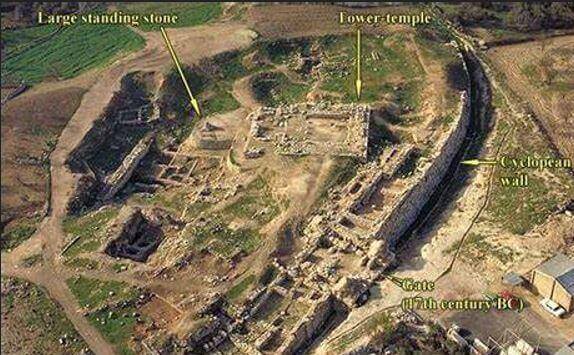
- In Genesis 12 God is restarting with one man: Abraham. God reveals to him his plan for redeeming and ultimately reconciling the human race to himself, his design of building family and nation in his image.
- Through Abraham’s line God will bring the One who can alone reconcile man to God: Jesus.
- In the beginning nothing sets Abraham apart other than being called. His ethnic background is a ‘Chaldean’, he is a settler in Ur and has the same genes, the same mindset as the others around him.
- Abraham family is not without problems: Patterns of lying to foreign kings, fighting over land, sowing seeds of family infighting and future tribal conflicts (Ishmael – Isaac), more lying to foreign kings, deception in family, Laban’s tyranny etc.
- Israel has God’s call to be and build a new nation but they do not have God’s revelation of how to do it, they are chosen but not wise, good or much different from others. The call of God must be joined by the thinking of God to bear fruit.
- Gen 34 shows Abraham’s tribe escalating into violence: after a ‘sort-of-rape’ of Jacob’s daughter, – though reconciliation is attempted seriously from the Shechem side, Jacob’s sons deceitfully abuse the only sacrament they have: circumcision and commit a genocide and plundering of the goods of the Shechemites.
- God’s act of mercy (covenant, marked by circumcision) is turned into a tool for violence against human race, perpetrated by God’s chosen people … disaster!
- Consequences are fear of annihilation by Canaanites, the need to flee onward to Bethel (Gen 34:30).
- Compassion is God’s protection on them that they are not attacked.
- Violence continues in Abraham’s tribe with jealousy, devaluing of human life > a near-fratricide of Joseph, converted to selling him into slavery.
- Correction of God to change their culture of violence:
- breaking their arrogance & wilfulness as a community through 300 years of slavery
- giving of the Law through Moses
Elements of Trial 5
- God deals with community guilt, he brings cultural correction through generations of incarceration and limiting of freedoms with the purpose of redemption.
- God’s dilemma: To redeem man & maintain his choice while not destroying him nor allowing him to destroy himself and others.
- God gives a Life sentence: 430 years Egypt, some 300 years as slaves. Again and again there will be the reminder: ‘Remember you were slaves in Egypt’ to motivate the Israelites to just behavior to the vulnerable. Example: Deu 5:15, 4th commandment.
- Newly given Law of Moses: the people being governed have the right and responsibility to choose how, over what and by whom they will be governed. This will produce the highest understanding of sacredness of individual, family & community and highest quality of life yet in history.
- But also in the negative: God is letting man go his own way to teach us the destructiveness of the human heart.